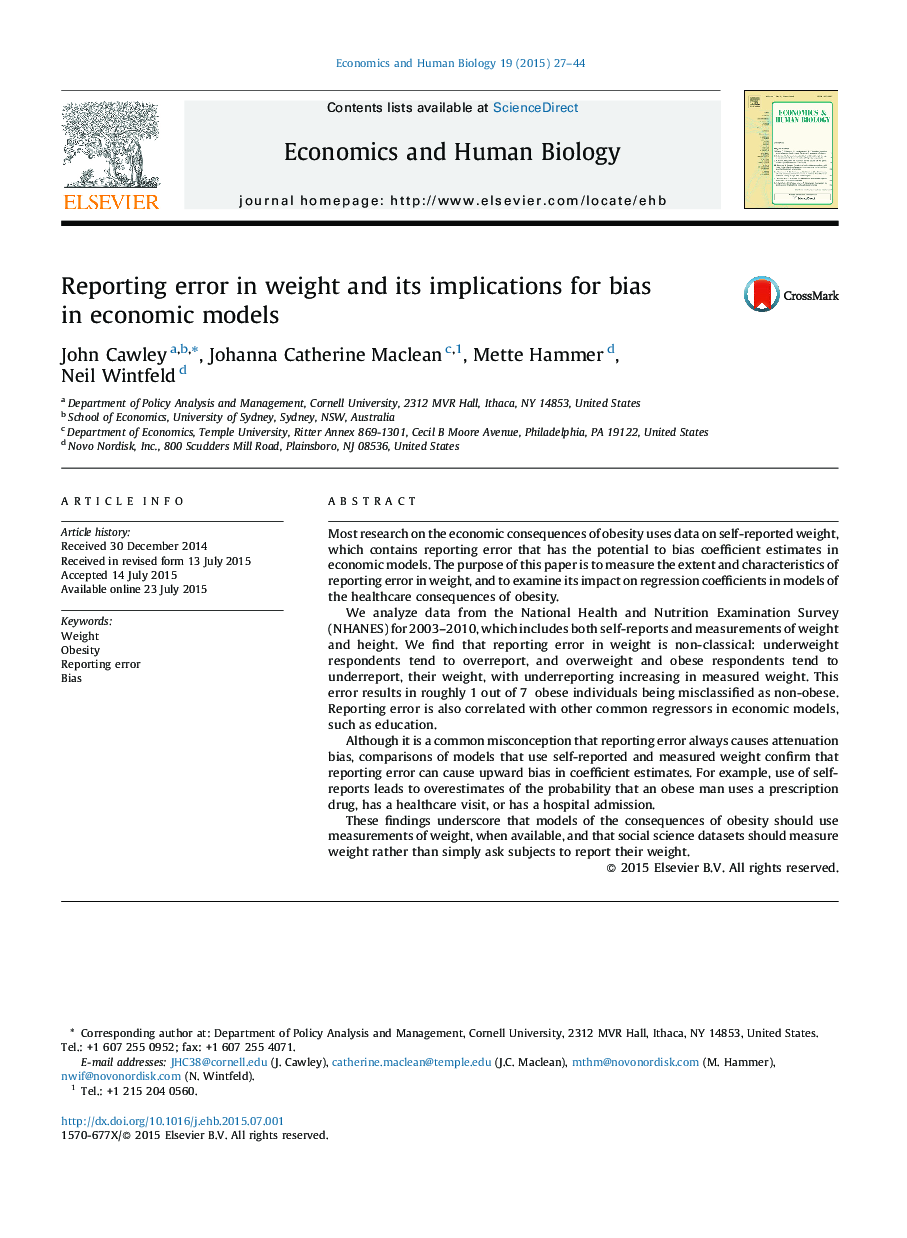| Article ID | Journal | Published Year | Pages | File Type |
|---|---|---|---|---|
| 5056929 | Economics & Human Biology | 2015 | 18 Pages |
â¢Reporting error in weight is substantial; its absolute value averages 6 pounds or 3.3%.â¢Reporting error in weight is not classical; the extent of underreporting increases with measured weight.â¢Roughly 1 in 7 individuals obese according to measurements are misclassified as non-obese by their reported weights.â¢Better educated individuals tend to report their weight more accurately.â¢Reporting error in weight can lead to upward bias in estimates of the healthcare consequences of obesity.
Most research on the economic consequences of obesity uses data on self-reported weight, which contains reporting error that has the potential to bias coefficient estimates in economic models. The purpose of this paper is to measure the extent and characteristics of reporting error in weight, and to examine its impact on regression coefficients in models of the healthcare consequences of obesity.We analyze data from the National Health and Nutrition Examination Survey (NHANES) for 2003-2010, which includes both self-reports and measurements of weight and height. We find that reporting error in weight is non-classical: underweight respondents tend to overreport, and overweight and obese respondents tend to underreport, their weight, with underreporting increasing in measured weight. This error results in roughly 1 out of 7 obese individuals being misclassified as non-obese. Reporting error is also correlated with other common regressors in economic models, such as education.Although it is a common misconception that reporting error always causes attenuation bias, comparisons of models that use self-reported and measured weight confirm that reporting error can cause upward bias in coefficient estimates. For example, use of self-reports leads to overestimates of the probability that an obese man uses a prescription drug, has a healthcare visit, or has a hospital admission.These findings underscore that models of the consequences of obesity should use measurements of weight, when available, and that social science datasets should measure weight rather than simply ask subjects to report their weight.
